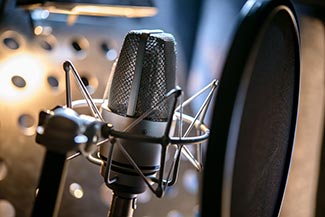
As technology improves, one form of media in particular has continued to grow and develop but still remains wildly popular—videos. Whether you use them as eLearning modules or as one of the components in your marketing strategy, your multimedia content should be localized, just like your website content. To increase your global reach, a Mandarin audio translation (localization) may be crucial for your videos, and this usually includes the initial step of translating a script into Simplified Chinese and then proceeding with the actual audio recording in Mandarin.
Why is Mandarin Audio Translation Important?
While it’s important to have some knowledge about your target audiences and the languages they speak, it’s also normal for many companies to be uncertain into which languages their content needs to be localized. But Mandarin audio translation is an important aspect of localization that you simply can’t miss out on when appealing to the Chinese market. This is especially critical if your company is reaching out to Mainland China and Singapore. Mandarin is the most commonly spoken language in the world, with more than 955 million speakers across the globe, and is the native language for 14.4% of the world’s population.
How to Know Mandarin Is Right for Your Audio Translation
Still unsure if Mandarin audio translation is right for your target audience? Keep in mind that not only do languages vary from country to country, but written language can differ from spoken language. Mandarin is the spoken language unifier of mainland China, and Mandarin audio translation is usually a good value and a safe bet.
Building Confidence in Your Market with Mandarin Audio Translation

Because Mandarin is the most commonly spoken language in the world, a Mandarin audio translation can not only connect you with a larger audience, it can also build your brand’s reputation and bolster consumer confidence. It shows that not only do you appreciate other cultures and languages, but that you are taking the time to localize your content so you can successfully reach people all over the world. Your Mandarin audio translation doesn’t just reach people in China, it is beneficial to Chinese speakers worldwide. A recent United States Census Bureau study found that the third most common non-English language spoken in the U.S. was Chinese dialects. With most of the Mandarin speakers residing in New York, Los Angeles, and San Francisco, it’s even more imperative that you consider a Mandarin audio translation / localization for your multimedia and eLearning projects so that you can reach your market on both sides of the country and around the world.
Working with a Professional Translation Company for Mandarin Audio Translation
A native speaker is vital to a successful Mandarin audio translation, especially if you’re localizing eLearning content. Can you imagine trying to learn a new skill or train for a job in a language that is choppy, hard to understand, and not your native tongue? Many marketing tactics can be implemented by your company’s employees, but a Mandarin audio translation requires a professional in order to ensure that the information is accurate, culturally appropriate, similar in length to the original translation, and recorded professionally. When you reach out to a professional translation company for your Mandarin audio translation, you will find native speakers with subject-matter expertise and experience in your particular field, which is especially beneficial when it comes to company or product-specific terminology.
To find out more about Interpro’s Mandarin audio translation services, please contact us today.

